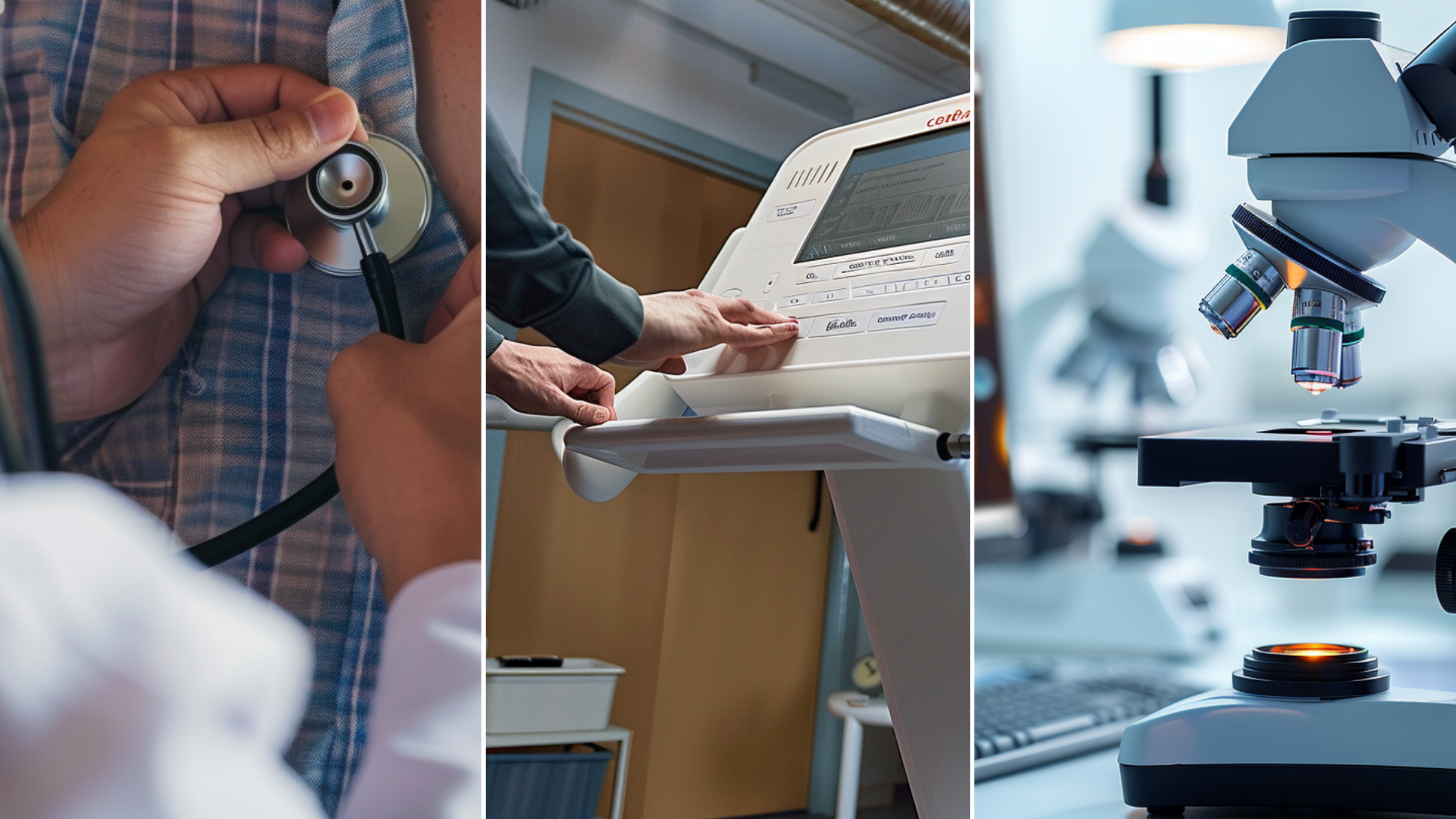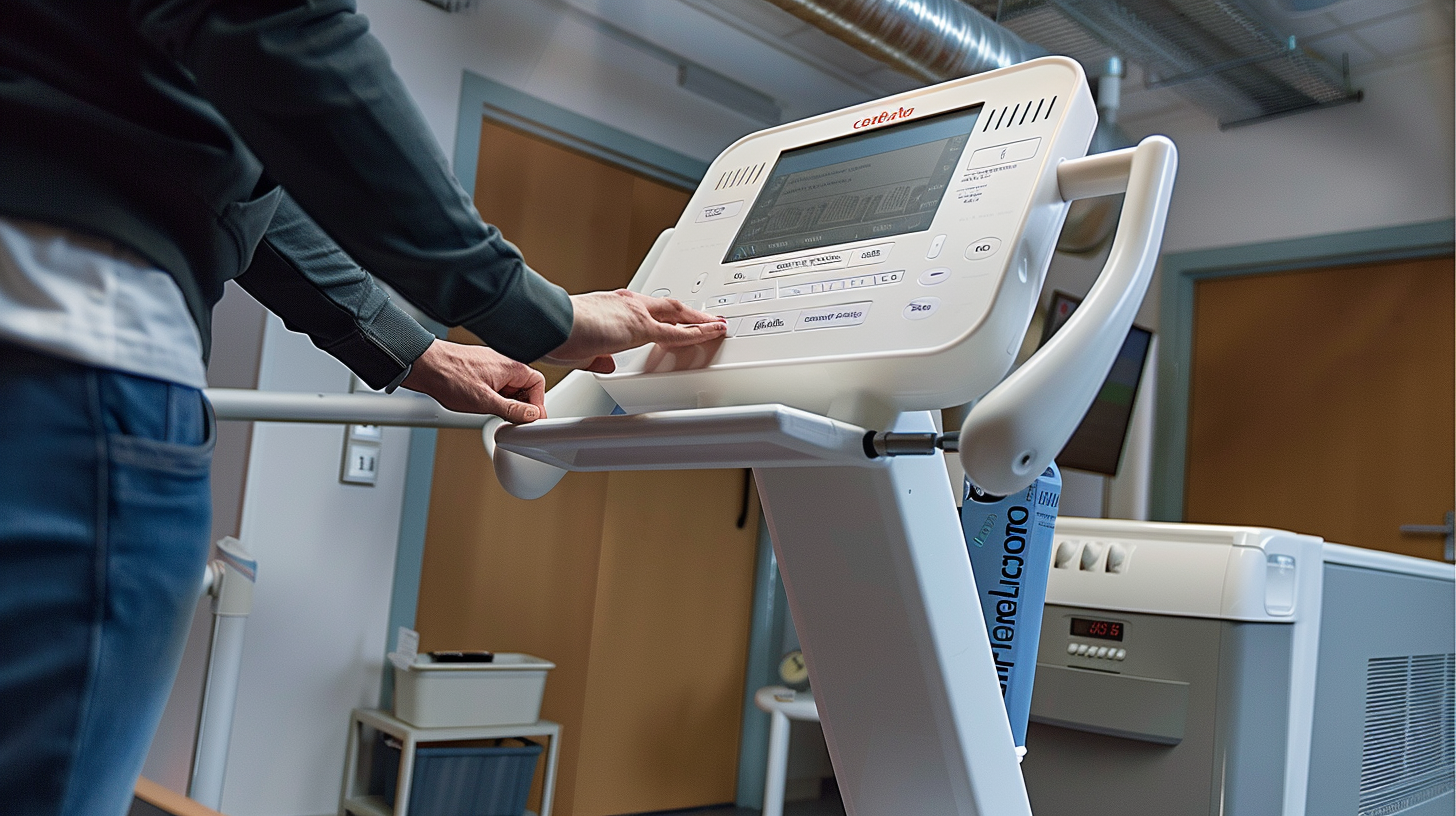
Medical Assessments
Understanding how thorough medical assessments contribute to tailored weight loss strategies.
Medical assessments for weight loss may involve a comprehensive evaluation of an individual’s medical history, physical examination, and laboratory tests. These assessments can help identify any underlying medical conditions contributing to weight gain, such as hormonal imbalances or metabolic disorders. By identifying these conditions, healthcare professionals can develop targeted treatment plans to tackle the root cause of weight gain and facilitate effective weight loss.
In addition to weight loss assessments, cognitive impairment screening tests are often conducted to assess an individual’s mental status and cognitive functioning related explicitly to weight loss. These assessments are designed to detect any cognitive deficits or impairments that may hinder an individual’s ability to adhere to weight loss strategies or make informed decisions regarding diet and exercise.

Physical Examinations
Physical examinations conducted during a medical evaluation for weight loss involve various techniques healthcare providers employ to assess an individual’s overall health. These techniques encompass auscultation, inspection, palpation, and percussion.
Auscultation involves listening to the sounds produced by different organs using a stethoscope. This technique allows healthcare providers to evaluate the health of the cardiovascular, respiratory, and gastrointestinal systems. Abnormal sounds or murmurs can indicate underlying issues that may contribute to weight loss difficulties.
Inspection is a visual examination of the body to observe any visible abnormalities. By carefully observing the skin, hair, nails, and overall body appearance, healthcare providers can identify potential indicators of specific diseases or conditions contributing to weight loss challenges.
Palpation is a method where a healthcare provider applies gentle pressure with their hands to feel for abnormalities, such as enlarged lymph nodes or abnormalities in the abdomen. This technique helps to determine the consistency, texture, and tenderness of different body parts.
Lastly, percussion involves tapping specific body areas to evaluate the density and resonance of underlying organs. This technique can help identify lung, liver, or abdomen abnormalities.
These physical examination techniques provide valuable insight into the health of each organ system in the body. By checking for any abnormalities or physical causes of mental health issues, healthcare providers can develop personalized weight loss plans that address underlying medical conditions.

Blood Tests
Blood tests are crucial in assessing overall health, particularly regarding medical evaluations for weight loss. These tests provide valuable insights into various aspects of our health, enabling healthcare professionals to make well-informed decisions about our well-being. Several types of blood tests are commonly used in medical assessments, each serving a specific purpose.
One such test is a complete blood count (CBC), which measures different components of our blood, such as red and white blood cells, platelets, and hemoglobin levels. This test helps detect conditions like anemia, infection, and various blood disorders.
Another important blood test is a metabolic panel, which evaluates the function of vital organs like the kidneys, liver, and pancreas. It measures electrolytes, glucose, and critical enzymes, helping identify abnormalities like kidney or liver dysfunction and diabetes.
A diabetes screen blood test measures blood glucose levels, allowing the early detection and management of diabetes. This test is essential for losing weight; blood sugar control is vital to a healthy weight management plan.
Thyroid screen blood tests assess the functioning of the thyroid gland by measuring levels of thyroid-stimulating hormone (TSH), thyroxine (T4), and triiodothyronine (T3). Imbalances in thyroid hormones can affect metabolism, so it is crucial to evaluate them during medical assessments for weight loss.
Lastly, a lipid panel measures cholesterol and triglyceride levels, providing insights into cardiovascular health. Weight loss efforts often involve lifestyle changes impacting cholesterol levels, making this test highly relevant.

Body Composition Analysis
Body composition analysis is crucial in assessing an individual’s health and fitness. It goes beyond measuring body weight and analyzes various body components, such as fat mass, fat-free mass, and bone density. This analysis provides valuable insights into an individual’s body composition and helps design personalized weight loss programs.
Different methods are used for body composition analysis, each with advantages and limitations. Bioelectrical impedance analysis (BIA) measures the resistance of electrical currents passing through the body to estimate body fat percentage. Skinfold measurement involves measuring the thickness of skinfolds at specific sites to calculate body fat levels. Dual-energy X-ray absorptiometry (DEXA) scanning uses low-dose X-rays to assess body composition by measuring bone density, fat, and lean mass
Understanding the critical components of body composition enables healthcare professionals to accurately determine an individual’s fat mass, fat-free mass, and bone density. This information is essential for monitoring progress during weight loss programs and adjusting to achieve optimal health outcomes.
Factors like age, gender, and physical activity level can significantly affect body composition. As individuals age, they tend to experience a decrease in muscle mass and an increase in body fat percentage. Moreover, males typically have a higher muscle mass and lower body fat percentage compared to females. Physical activity level also influences body composition, as regular exercise contributes to lean muscle development and fat loss.
Understanding the Vital Role of Medical Assessments
Embarking on a journey towards sustainable weight loss requires a comprehensive understanding of your body’s unique needs. Medical assessments are the cornerstone of this journey, providing insights into underlying health conditions and facilitating tailored treatment plans. At Medical Health Solutions, we’re committed to guiding you every step of the way. Contact us today at (303) 951-8617 to schedule your weight loss consultation. Let’s work together to achieve your wellness goals and prioritize your health for a brighter future.
We provide weight loss services for these Lone Tree, Colorado areas:
Lone Tree, Acres Green, Belvedere, Bluffmont Estates, Carriage Club, Centennial Ridge, Club Terrace, Country Club Estates, Cypress Green, Douglas County, Fairways At Lone Tree, Heritage Estates, Heritage Hills, Lincoln Square Lofts, Masters Park, Montecito, Prominence Point, Ridgegate, Taos of Lone Tree, Terra Ridge, The Fairways, and Wildcat Ridge.
We also provide weight loss services for Edgewater, Colorado and these surrounding areas:
Edgewater, Wheat Ridge, Arvada, Westminster, Granite, Golden, Englewood, Littleton, Broomfield, Dupont, Commerce City, Morrison, and Henderson.
We also provide weight loss services for these Denver, Colorado areas:
Denver, Baker, Capitol Hill, Central Business District, Cheesman Park, Cherry Creek, City Park, City Park West, Civic Center, Congress Park, Country Club, Lincoln Park, North Capitol Hill, Speer, Union Station, Belcaro, Cory-Merrill, East Colfax, Hale, Hilltop, Indian Creek, Lowry, Montclair, Park Hill, Virginia Village, Washington Virginia Vale, Windsor, Clayton, Cole, Elyria-Swansea, Five Points, Globeville, North Park Hill, Skyland, South Park Hill, Whittier, Central Park, Gateway, Green Valley Ranch, Montbello, Northeast Park Hill, Auraria, Berkeley, Chaffee Park, Highland, Jefferson Park, Regis, Sloan Lake, Sunnyside, West Highland, College View, South Platte, Overland, Platt Park, Rosedale, University, University Hills, University Park, Washington Park, Washington Park West, Wellshire, Goldsmith, Hampden, Hampden South, Kennedy, Southmoor Park, Southwest, Bear Valley, Fort Logan, Harvey Park, Harvey Park South, Marston, West, Public housing in Sun Valley., Athmar Park, Barnum, Barnum West, Mar Lee, Ruby Hill, Sun Valley, Valverde, Villa Park, West Colfax, and Westwood.






